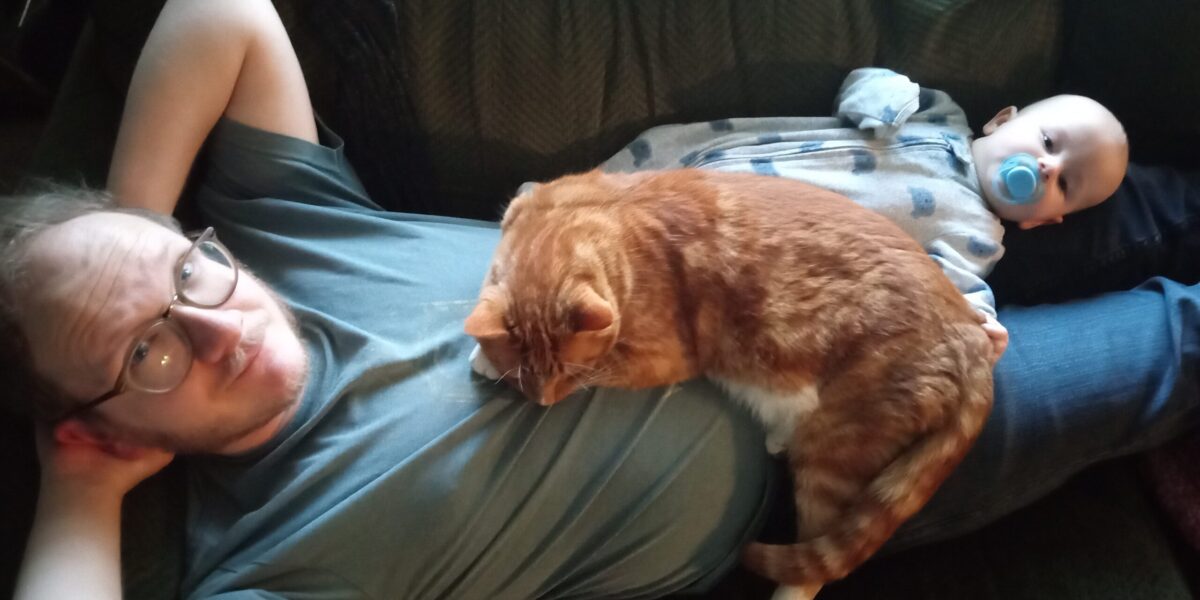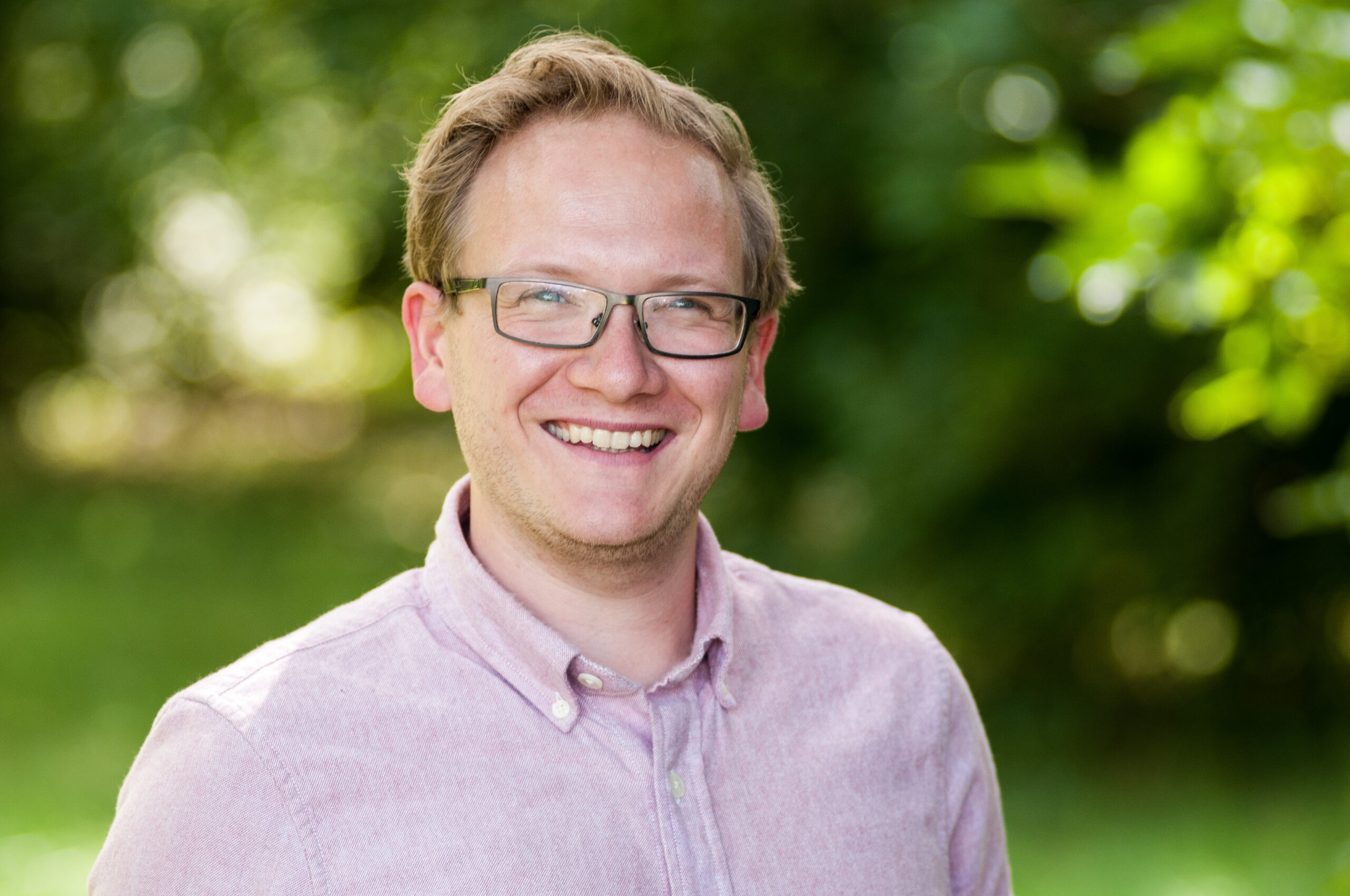?In recognition of Fathers Day on June 12, Travis
Duerksen, writer and multimedia producer with Mennonite Mission Network,
reflects on his experiences with newfound fatherhood.
I was privileged to become a father last September. I earned this title through hours of teeth-gritting labor (and months of discomfort). Not of my own, but of another person the love of my life, a woman who became a mom the same moment I became a dad, and a little boy became our son.
Before that moment, my wife and I had spent years, both on our own and then together, coming to terms with the possibility that we would not become parents, at least in the biological sense.
Individually, we had wanted to become parents someday, even as we both remained single into our 30s. As our relationship with each other blossomed, we talked about how excited we would be to parent together. These conversations came with a looming asterisk: we also knew that health complications meant our ability to conceive was not guaranteed. Neither of us would describe ourselves as pessimistic, but we are realists, and sometimes that looks the same. Through dating, we determined that we wanted to be together more than we valued the potential of becoming parents with other people. We married in the spring, and on the first day of fall the following year, our son was born. Healthy, on-time, and adorable.
We were surprised. We were ecstatic. We knew that we were very, very lucky.
 Erica, Travis, and their son. Photo provided.
Erica, Travis, and their son. Photo provided.
Before our son was born, I would daydream about what being a dad might look like some day. What would I want to teach my child? What games would we play together? How would I guide a little person through a world that can be both cruel and beautiful in equal measure?
As our son’s birth grew closer, those daydreams of activities and life lessons dissipated, replaced by a deeper, fundamental question: what even is the purpose of fatherhood?
Every day, throughout her pregnancy, my wife’s body worked at knitting together this little person growing inside her. Her body shifted and swelled; made her sick and sore. Her bone structure changed to make the physical act of birth possible. Her immune system shifted and suppressed itself so it wouldn’t attack the fetus as it would any other parasite that was taking nutrients away from the body.
We attended parenting class after parenting class that detailed the wonderous ways that the mother’s body tends to her child, before and after birth following a set of instructions laid deep throughout her biology, well below any conscious thought. Pheromones and touch. Antibodies and gut bacteria. Body temperature regulation and milk production. The bodies of the mother and baby influenced each other at the most basic levels, taking turns leading and following each other like dancers, swaying to a rhythm that God had drummed since time immemorial.
Any act of fatherhood felt rather trivial by comparison.
For a while, I had a habit of asking my male friends what healthy masculinity looked like for them. No one had difficulty thinking of what toxic masculinity looked like. Suppressed emotions (except for anger), violence and domination. Those were answers that came quickly. But examples of healthy masculinity were harder to define. Most ideas (kindness, trustworthiness and self-acceptance) were traits that anyone would want to have, regardless of whether they considered themselves masculine or not. Even a valuation of physical strength or fitness wasn’t just reserved for men. After all, there were plenty of different people that showed up to the gym every morning. One friend finally concluded that his favorite part of being a man was growing a thick beard.
I enjoyed asking this question because I didn’t really have an answer myself. The men in my life that I admire, that I wanted to model myself after, are not unlike the women in my life that I admire they are people who work to respect others and respect themselves; reflecting the love of Jesus in the process. Healthy masculinity just seemed like a natural byproduct.
 Overall, Erica and Travis’ cat, Ollie, has adjusted well to the newest member of the family. Photo by Travis Duerksen.
Overall, Erica and Travis’ cat, Ollie, has adjusted well to the newest member of the family. Photo by Travis Duerksen.
Likewise, I have a feeling that my understanding of fatherhood, and what it means to be a good example of it, will boil down to a similarly universal ideal. Yes, I can consider myself a father in the same way my friend might consider himself a man based on his beard we both have the physical traits to prove it. Yet that definition does a disservice to what fatherhood (and healthy masculinity) can be. It sells short the potential inherent in the role.
I grew up with the understanding that God was a father. I was taught to refer to God as ‘he,’ and ‘him.’ For me, the idea of God being a fatherly figure was appealing, in no small part because the father (and grandfathers) in my life were kind, gentle men. My working blueprint for who a father is and how they interact with their family includes many things I want to do like my dad did, and only a few that I want to make sure I do differently. I know that’s not the case for many people.
God is, by nature, unknowable. God reveals themselves to us, and yet is beyond our understanding of time, of place, and of self. Like anything beyond our comprehension, then, God is compared to things we know, even if these comparisons individually fall short. God is like a shepherd. God is like a consuming fire. God is like a woman in labor.
For me, the perspective of God as a father figure is helpful. The perspective of God as a mother figure is helpful, as well. Remembering that God is well beyond my comprehension of these two roles helps keep me from making God so small and so predictable that I might be able to put God into a box, contained for my convenience.
My son is now eight and a half months old, and he continually reminds my wife and me that he is soaking up everything we say and do taking the pieces of life we model for him and arranging them in a way that makes sense. He wants to turn the storybook pages like we do. He wants to eat the same food we do. And he desperately, desperately wants our phones.
 Travis and his son. Photo by Erica Stoltzfus.
Travis and his son. Photo by Erica Stoltzfus.
There is still a slight edge of fear when I consider that I will be the one who sets his understanding of what a father is like. To know that there will be aspects of my parenting that he will vow to do differently if given the chance. Yet I also find a sense of deep comfort, knowing that through the years, he will be helping me to grow, expand, and redefine my understanding of fatherhood, too.








